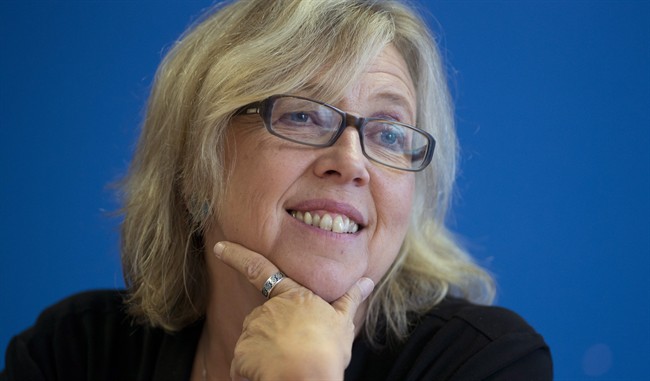For a party that has relatively little public support, the Green Party is showing once again it can get a disproportionately large number of people angry about its very existence.

But it seems that anger is not only misplaced, but is also somewhat anti-democratic. Many supporters of other political parties want the Greens to go away, not because of their policy platform but because their existence may pose a threat to accomplishing their main goal: defeating Stephen Harper and the Conservatives.
However, more than a half million people voted for the Green Party in 2011, with almost 150,000 of them coming from B.C.
To tell that many people that their vote is “wasted” on the party they believe in and should instead be conferred on a party they may want nothing to do with no doubt strikes many folks as offensive.
There’s no question the Green Party also wants Harper defeated. But it is also trying to build itself as a political party that has more to offer than a single MP, and that kind of building takes time.
To take a pass on a federal election — and that, basically, is what many federal Liberals and in particular New Democrats are asking it to do — would be political suicide for a fledgling party struggling to expand.
Frankly, I think the Greens will be lucky to elect one or two MPs on October 19th. Its leader, Elizabeth May, has to be considered the favorite to hang onto her seat in Saanich-Gulf Islands while its candidate in Victoria (Joanne Roberts) appears to have significant support as well in a riding currently held by the NDP.
The party would appear to have little chance of winning anywhere else, but so what? Since when is political legitimacy conferred only on those with a perceived chance of victory?
It could very well be true that the Green voter actually determines the outcome of a number of riding races in B.C., although there’s not a lot of science to back up that assertion in every case. May, for example, appears to have benefitted primarily from a huge drop-off in the Liberal vote when she won in 2011, but she also likely drew some ex-Conservative voters as well.
While overall their popularity may be spread rather thinly across the province, the party does enjoy significant support in pockets of B.C. and in certain ridings. And if the Conservatives win in those areas while the Greens also put some significant numbers, get ready to hear howls of outrage from NDP or Liberal quarters.
Besides Victoria, several other Vancouver Island ridings bear watching to see what kind of impact the Greens will have on Oct. 19th. The newly-created riding of Nanaimo-Ladysmith would have attracted more than 4,000 Green voters if it had existed in 2011 (if you take the results back then and transpose them within the new riding’s boundaries).
There has already been one rather large Green party political rally in the riding in this election, and its candidate (Paul Manley, son of former NDP MP Jim Manley) has some name recognition.
The NDP would have won the riding in 2011, by a slight margin (45 per cent to 40 per cent) over the Conservatives. If the Greens can improve on their showing and the Conservatives end up winning, you can imagine the reaction in NDP circles.
The Greens are strongest, both federally and provincially, on south Vancouver Island and parts of the Okanagan. That means ridings like Courtenay-Alberni, Cowichan-Malahat-Langford, Esquimalt-Saanich-Sooke and South Okanagan-West Kootenay (ridings where the Greens finished third, ahead of the federal Liberals, in 2011) will be the ones to watch.
Some will view the Green vote as a “spoiler” that may allow the Conservatives to win tight races. Others will see the Green vote, if it increases, as a sign that a new political party is growing in strength.
Both may be legitimate arguments. But to suggest the Greens (or any political party for that matter) should “get out of the way” to ensure another political party doesn’t win is arrogant, and misses a key and important aspect of democracy.
Keith Baldrey is the chief political reporter at Global BC. This is reprinted from his weekly column with Glacier Media.



Comments